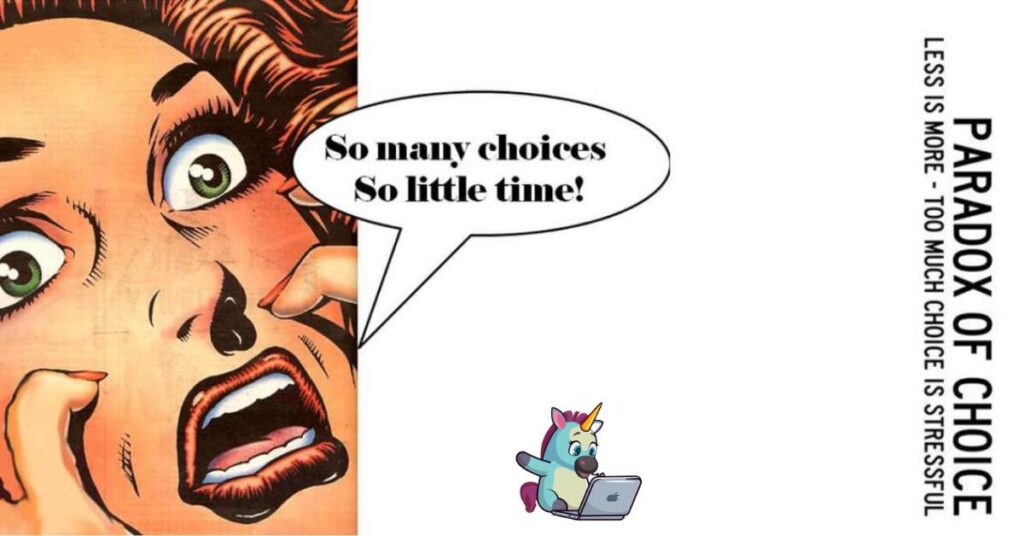
Ever stood in front of a wall of toothpaste options, overwhelmed and unsure which to choose?
You’re not alone.
This paralysis is a prime example of the “less is more” principle in action.
But hold on a second…
Why does limiting options lead to more sales, and how can marketers use this counterintuitive concept?
The psychology of choice overload.
Although it might seem counterintuitive, this marketing principle suggests that fewer options can lead to higher conversion rates.
Smart marketers and brands use this tendency to boost sales and improve customer satisfaction.
It’s as if our brains say, “With fewer choices, I can make a decision more confidently!”
🧠 The Psychology of Choice Overload

It all boils down to our cognitive limitations and desire for simplicity.
When faced with too many options, we experience decision fatigue.
Simplifying choices can make us feel more confident and satisfied with our decisions.
The “less is more” approach exploits this psychological tendency by offering a curated selection that leads to easier decision-making, creating a sense of relief in the process.
⚖️ The Good, the Bad, and the Choice Trap

While limiting choices can be a powerful tool for driving conversions, it’s not without drawbacks:
On the positive side, a well-executed “less is more” strategy can:
- Increase conversion rates and sales
- Reduce decision fatigue for customers
- Improve overall customer satisfaction
However, there are also potential downsides to consider:
- Limit product variety and customization options
- Could potentially alienate customers seeking more choices
- Require careful product curation and market research
🚨 The Impact of “Less is More” in Digital Marketing

In the world of digital marketing, the “less is more” principle can have significant impacts:
- Improved User Experience: By offering streamlined options, brands can make navigation easier.
- Higher Conversion Rates: Fewer choices often lead to quicker decision-making and purchases.
- Focused Marketing: A limited product range allows for more targeted marketing efforts.
Enhanced Brand Clarity: A curated selection can strengthen brand identity and positioning
🐐 “Less is More” Marketing GOATs
Check out these brands that have mastered the art of leveraging the “less is more” principle:
Apple
Apple’s limited product line has become iconic, driving massive sales and brand loyalty.
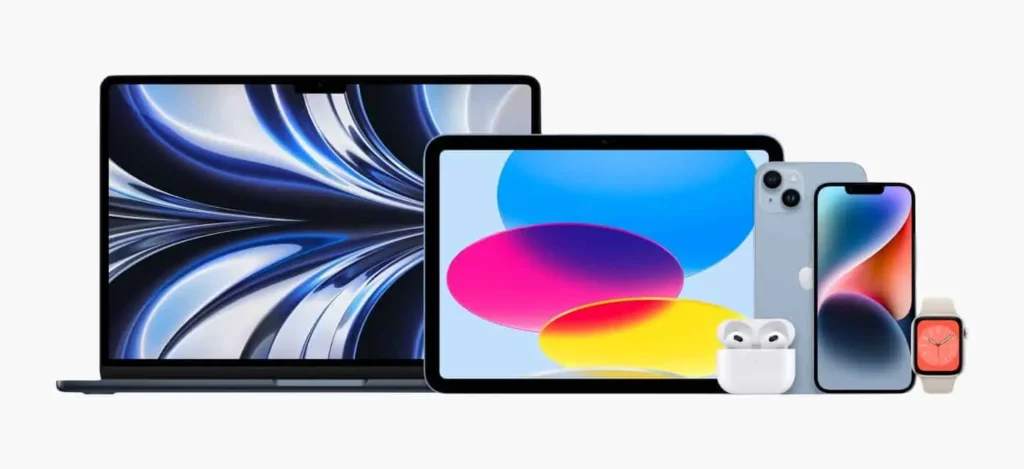
In-N-Out Burger
In-N-Out’s simple menu focuses on quality over quantity, creating a cult following.
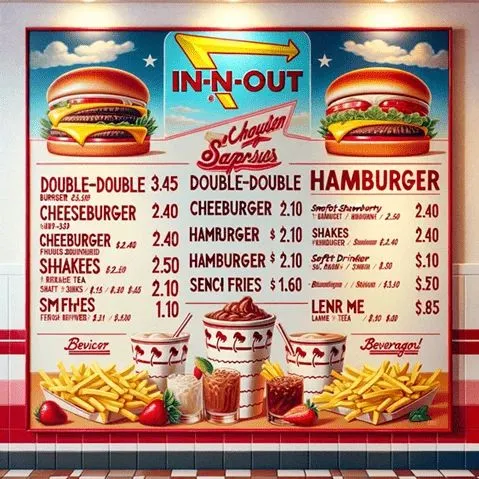
Trader Joe’s
Trader Joe’s curated selection of unique products simplifies shopping while driving customer enthusiasm.
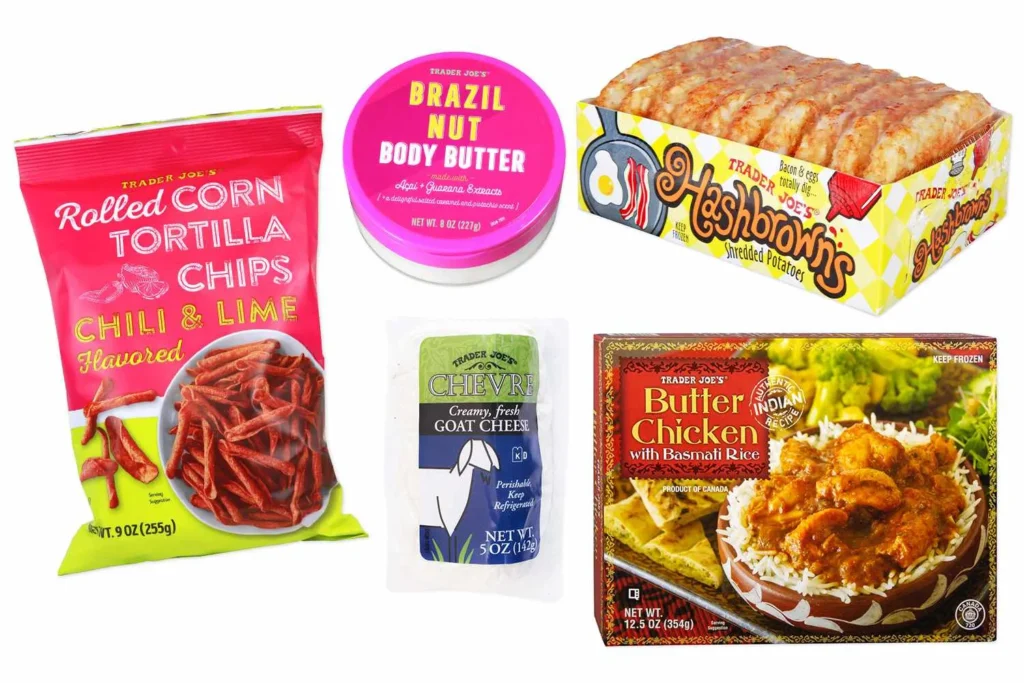
Everlane
Everlane’s focused clothing line emphasizes quality and transparency over endless options.

By studying these examples, understanding the psychology behind the “less is more” principle, and considering the potential traps, you can develop a balanced marketing strategy that drives conversions while providing genuine value to your audience.

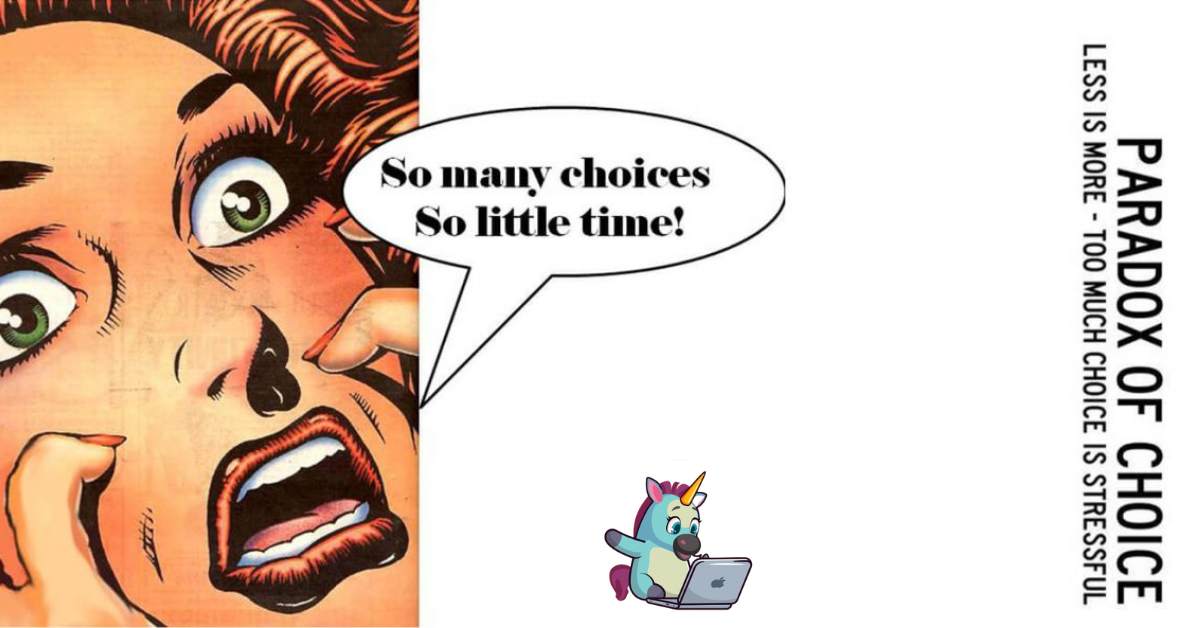
Leave a Reply